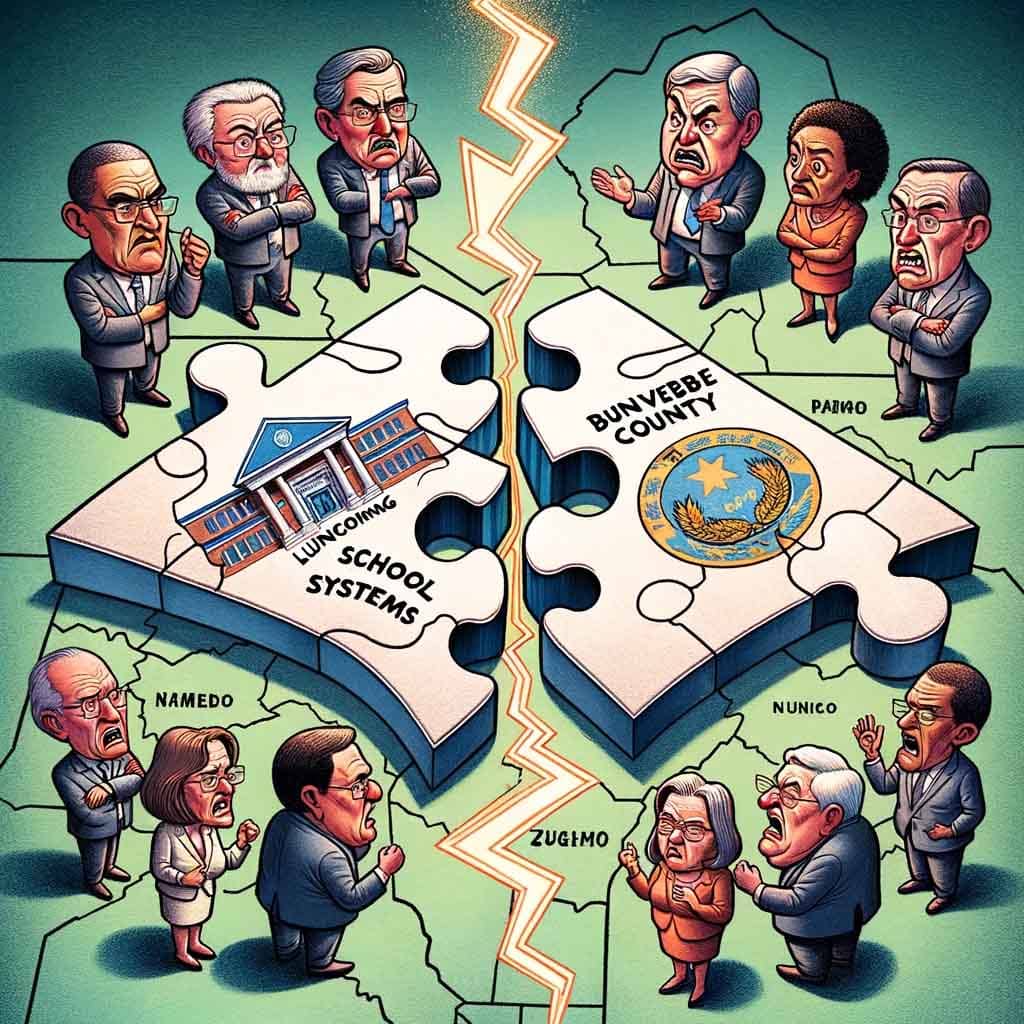In a follow-up to our ongoing conversation, Buncombe County finds itself at the center of a political maelstrom over the future of its educational structure. Cast your mind back to our September newsletter, where we discussed the Board of Education’s pushback against House Bill 66, legislation that seeks to restrict school board elections to district-only voters. The bill received a nod from conservatives, hopeful it might carve out a place for their voice within Buncombe County’s largely Democrat-run local government.
At an August Buncombe Schools board meeting, board member Amanda Simpkins and their attorney, Dean Shatley, expressed frustration over the bill’s stipulations. Then came a surprising development. While not a call for an outright merger, State Senator Julie Mayfield announced that Asheville City Schools and Buncombe County’s school system are mandated to organize a merger study needing completion by 2025.
Fast forward to the October 17 Board of Commissioners meeting, where the commissioners, somewhat begrudgingly, voted to lead the School Consolidation Feasibility Study. They tasked county staff with procuring a firm to conduct this assessment, outlined by Strategic Partnerships Director Rachael Sawyer Nygaard. The project’s timeline is as follows:
- Oct 2023: Develop the study’s scope.
- Nov-Dec 2023: Request for Proposals.
- Jan-Feb 2024: Evaluate submissions.
- Mar 2024: Vendor selection and budget approval.
- Apr-Dec 2024: Execution of the feasibility study.
- Feb 2025: Presentation of the study to the General Assembly.
Commissioner Parker Sloan voiced disdain at the meeting, highlighting the state’s ‘intrusion’ into local educational matters—a sentiment that resonated with his peers. The requirement for a study does not ensure a merger, but it does underline a contentious relationship between local authorities and the state legislature.
This mandated study is a step into uncharted waters. It doesn’t spell out consolidation but certainly brings the possibility to the forefront. With this, the expectation of a smooth collaboration between the city and county school systems is tempered by an undercurrent of apprehension. The public, meanwhile, waits on the edge of their seats, anticipating the “real fireworks” to come post-study in 2024.
This mandated study is more than a formality – it catalyzes a larger conversation about local governance, state involvement, and the future of our children’s education in Buncombe County. As the study progresses, we will continue to provide insights and updates.
Stay tuned to our blog for the latest details and discussion on this critical issue, and don’t hesitate to join in on the conversation below with your perspectives.



